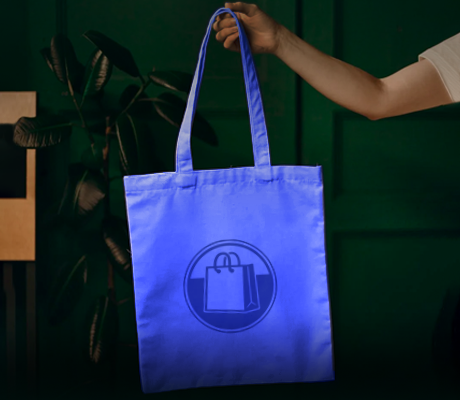Plastic vs. Paper Retail Bags: Which Works for Your Product?
Posted by Julie Rotuno on 23rd Oct 2023
Many grocery stores, boutiques, fashion retailers, and niche shops rely on the best retail bag option. There are many requirements that business owners seek out in their retail bags, such as strength, storage capabilities, eco-friendliness, and more. So which is better for your product: plastic or paper retail bags?
Plastic Retail Bags
Invented in the 1960s, plastic retail bags became widely used in various stores and businesses throughout the 1970s. The most common type is the thin plastic bags at cash registers, typically made of high-density polyurethane (HDPE). Some retailers use low-density polyurethane plastic bags.
Plastic Bag Advantages
One major difference between plastic and paper retail bags is that plastic bags offer more versatility than paper bags. This might make them work better for your product. Shoppers and retailers can use them multiple times, lasting through various weather conditions and more. Lastly, they make for easily printed logos and can create discussion or word-of-mouth for your business.
Plastic Bag Disadvantages
Unfortunately, there are a couple of downsides that come with plastic retail bags. They often consist of chemicals that can contaminate water and injure sea life. Furthermore, plastic bags can take many years to decompose completely.
Paper Retail Bags
Paper retail bags consist of renewable, biodegradable resources, often from cut-down trees stored for three years in mills until completely dry. Bark becomes tripped, and the manufacturers cut the wood into one-inch cubes. The cubes see exposure to high pressure and heat. From there, the factories mix them with limestone and sulfurous acid to make pulp.
After the pulp undergoes washing with bleach and fresh water, it gets pressed into paper. The manufacturers cut and print this before packaging and shipping it. Paper retail bags look great for boutiques and retailers.
Paper Bag Advantages
Because paper bags consist of paper, they offer eco-friendly benefits and allow for higher product capacity. Paper retail bags also contain 100-percent biodegradable materials, dissolving into water upon contact. This means less waste and no lasting environmental impact.
Paper Bag Disadvantages
One significant downside to paper retail bags is that the number of trees cut down yearly for them is staggeringly high. Also, burning wood releases considerable air pollution. As such, it can contribute to environmental issues.
Mid-Atlantic Packaging provides dependable, stylish shipping and packaging supplies for retailers, boutiques, grocery stores, and more! Our plastic shopping bags can add visual interest for customers while making for easy branding and marketing opportunities for your business. If you have questions about our products, contact us today.



